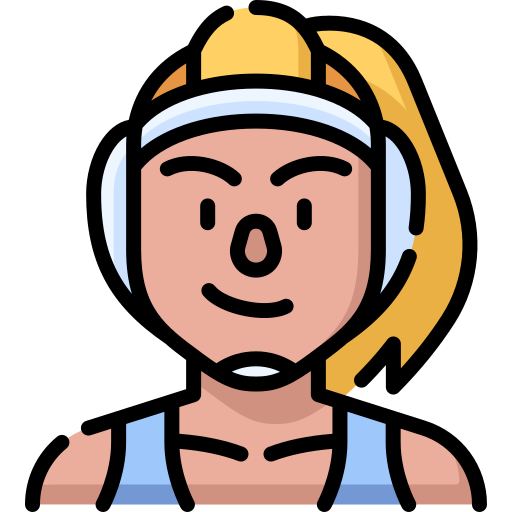Popular Topics
Impact to Insight: Wrestling With Life After a Concussion
After sustaining a concussion during wrestling practice, I faced an uphill battle that impacted every aspect of my life—academics, athletics, and mental health. Simple tasks became overwhelming, and I had to relearn how to function, from navigating classes with sunglasses to rebuilding my confidence through physical therapy. I embraced resilience and found strength in small victories. Inspired by Helen Maroulis’ journey, I decided to share my own story.
Are You Coach Cupcake or Coach Drill Sergeant?
As a wrestling coach, have you ever wondered where you fall on the spectrum of coaching styles? Are you “Coach Cupcake,” always soft, overly accommodating, and hesitant to challenge your athletes? Or are you “Coach Drill Sergeant,” relentlessly demanding, sometimes to the point of breaking trust and respect?
Coaching for Mental Performance in Wrestling
In competitive sports, the mind is just as important as the body. Coaches know the importance of strength, conditioning, and technique, but mental performance is often an underdeveloped area for both the athlete and the coach. As times shift and we’ve become more aware of what creates a well rounded athlete ready to perform at high levels, so must we shift into a new phase of education for coaches. Integrating mindfulness and mental training into your team's routine can help athletes stay calm under pressure, perform with clarity, and build stronger team bonds.
What's Your Why?
What is your why? Can you even remember anymore? When you do something for so long, its almost inevitable for your 'why' to come into question. Your why is the reason behind your effort. It is what keeps you driven, if you don’t have a why you may be weak when things get hard.
I'm Falling Behind in Wrestling
I seriously, seriously appreciate the honesty that athletes approach me with when they want advice on injuries. I can hear the genuine fear of falling behind in their voices. Having faced that same fear myself, I want to offer insight into the proactive steps athletes can take, even when it’s tempting to sit on the sidelines and wait for clearance to wrestle again.
Using Mindfulness to Face Your Fears in Wrestling
As athletes, we all have our fears—those little voices in our heads that say, “What if I mess up?” or “What if I lose?” Whether it’s freezing up on the mat, letting ourselves down, or worrying about disappointing our coaches, fear is something we wrestle with every day. And the truth is, it doesn’t just go away as you get better at the sport. In fact, those fears can get louder. But here’s the game-changer: you don’t have to get rid of them. You just have to learn how to live with them.
A Wrestler's Experience with Herniated Disc Surgery
A month after becoming the 2016 Olympic Trials Runner-up, I was home and injured. I discovered I had a herniated disc in my low back and the symptoms were so intense, it hurt to sit or carry my laundry. It was scary not knowing anything about the recovery process, or if it was even possible. I was eager to return to training and thus worsened my situation. Fortunately, I was able to recover from this injury with the help of my family and medical staff, and was able to continue my competitive wrestling career. This is how I overcame the biggest injury of my career, and how you can hopefully avoid the the same fate.
Lee Allen: Brain Neuroplasticity and Athletes
There have been major breakthroughs in the knowledge of how the brain works and our ability to study that process. For years philosophers, psychologists and the medical community believed that the body and its brain functioned like a machine. With the advancement of the computer many said “that is it, that is how the brain works!”
Kelsey Campbell: The Injuries Have Made Me Stronger Part 2
In 2012, shortly after qualifying for my first Olympic team, I began to feel a pop in my collar bone area while wrestling. Training at that point was specific and tailored to the olympic team. I was constantly aware of this injury, but didn't have the luxury of taking time to address the problem. It eventually went from discomfort to sharp pain. I would drill with someone much lighter than me, and just grabbing my normal standing single, I would literally see red. It wasn’t really a time to panic and true to my nature, I really didn’t discuss it outside of Terry Steiner, Kim Martori of Sunkist, and my physical trainers at the Training Center.
Olympian Kelsey Campbell: Be Resilient in the Face of Injuries Part 1
Kelsey Campbell has been a pillar in the sport of women's wrestling. From famously beginning her wrestling career late in high school, becoming ASU's first female wrestler ever, and making the 2012 Olympic team in historic fashion, Kelsey has had a long and full career. But it hasn't been without setbacks. She has continued to find a way to make it look easy to someone on the outside, but is able to reveal the hard work and resiliency that is the backbone of her career. Kelsey brings us up close and personal with her injuries in sport and how they have made her tougher.
Advocating for Yourself in Practices
When it comes to fully taking advantage of your training, there can be different scenarios. Sometimes we are new to sport and don't have the tools yet to know how to have our needs met. Sometimes we are the only girl on our wrestling team and may feel intimidated by an all male room. And other times we realize advocating for ourselves is a skill that can take a long time to master. Here are some great tips so you can start practicing now.
The Problem with Letting Wins Define Your Self Worth
Competition naturally brings on a count of wins versus losses, who beat who, and how many teams were made when you competed at an elite level. None of this is inherently bad, until we start letting those elements define our self worth. We have all heard stories from past athletes, no matter what level they competed at, of the lessons from sport which have carried over into their careers and personal lives. This happens for a reason, and they share these stories because they are proud of the characteristics sport has given them. They discover that the wins and losses have faded from memory, and they have reaped the benefits of resiliency and determination. It helped them become successful people in life. The athletes who stepped away from sport with a sour taste in their mouth often leave because they focused too much on the wins or losses. They never saw the lessons sport had to give, and often have a harder time adapting to what life throws at them.
What you Need to Move Past a Tough Training Session
Giving yourself the opportunity to be okay with the ups and downs of training is important. No one has consistently perfect training sessions, no matter how positive they seem or how awesome their workouts look on social media. Here are my tips so you don't get hung up on a tough training session:
12 Week Surgery Update
So far, I have had a lot of ups and downs typical of surgery. My last update focused on the the types of workouts I was able to maintain while I was living in a sling. The next phase has been working on increasing my range of motion (ROM) as well as adding band strength rehab. I have also been cleared to do some light swimming, which has been an awesome and freeing feeling for my shoulder!
Comfort Zone
My husband is into podcasts and videos which emphasize self improvement. He loves thinking outside the box, so we really get to share the intricacies of how the mind works as an athlete and in everyday life. He was watching a video about cold showers and how they can be just the beginning of helping you get out of your comfort zone. It inspired me to write about comfort zones and why it has made a difference in my sport and life!
When Should You be Journaling?
Having a journal for sport is so much more than writing down a specific technique, or pouring out your emotions on the page. Journaling becomes a log of where you are at a certain point in your training. You begin to see patterns in your behaviors or actions, and how you handle situations that arise in sport. Journaling can become your place to tell it like it is, and learn to move forward despite how you felt.
Is Sports Psychology Important for a Tournament Day?
Majority of our time and effort is spent learning technique and strategies to prep for competition day. Your strategy should also include prepping your mind. And this is much different from the mental strength we build while we push ourselves in the practice room. These mental strategies are all about giving our minds the best tools to allow our bodies to perform.
Dear Fargo Wrestlers...
Fargo! The crown jewel of our nation’s national high school tournaments. A huge undertaking for all involved. I've watched girls prepping, planning, excitement stirring...it's the biggest (figuratively and by actual size) tournament of the year for high school athletes who continue on to freestyle and greco. For a small percentage, it's triumph and success, and for others, it's heartbreak and disappointment. The first year I coached Fargo, I had just competed three and a half months prior at the 2016 Olympic Trials. Switching gears on my perspective was a challenge. I had just spent a career completely focusing on myself and my own training. You don't always remember the similar struggles of your youth, especially when you spend years conditioning yourself to a mindset always focused on moving forward and improving. However it was exciting to support young athletes through this huge event, as I had just done the same.


























